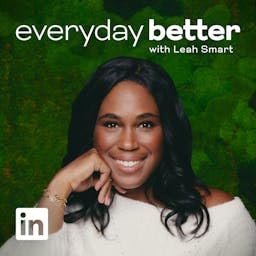Are you feeling stuck in a career you find meaningless, wondering if you’ll ever find your true calling? This week on Everyday Better, Leah Smart sits down with Sister Monica Clare — an Episcopal nun, spiritual counselor, and the creator behind the TikTok account @nunsenseforthepeople. Her path to the convent was anything but direct. For decades, she chased one career after another in Hollywood — acting, advertising, comedy, PR — all while ignoring the quiet truth she’d known since childhood: her true calling was to become a nun. In this powerful conversation, Sister Monica shares how she learned to stop listening to the world around her and finally start listening to herself. She opens up about the values exercise that changed everything, the somatic signals that told her she was on the wrong path, and why “plan A” doesn’t have to mean certainty — just courage. Together, she and Leah explore how any of us can uncover our calling, navigate fear, build self-esteem, and make meaningful changes one small step at a time. If you’ve ever wondered whether you're on the right path — or worried that you’re not — this episode will help you reframe failure, tune into what moves your heart, and get clearer on the life you’re truly meant to live. You can find her book ”A Change of Habit: Leaving Behind My Husband, Career, and Everything I Owned to Become a Nun” here. If you liked this episode, you’ll also love this one: Exploring the Universe: NASA’s Michelle Thaller’s Guide to Everyday AweFollow Leah Smart and Sister Monica Clare on LinkedIn.
続きを読む
一部表示
 25 分
25 分 27 分
27 分 30 分
30 分 34 分
34 分 41 分
41 分 30 分
30 分 43 分
43 分 2025/10/0734 分
2025/10/0734 分
